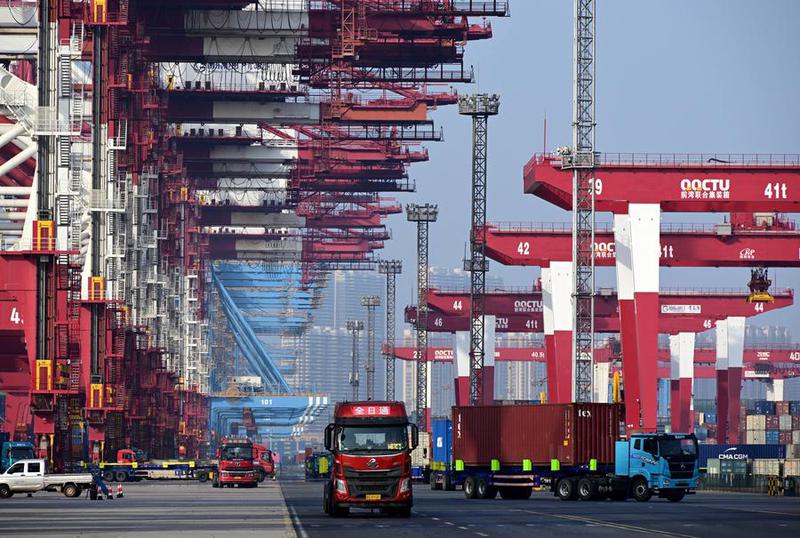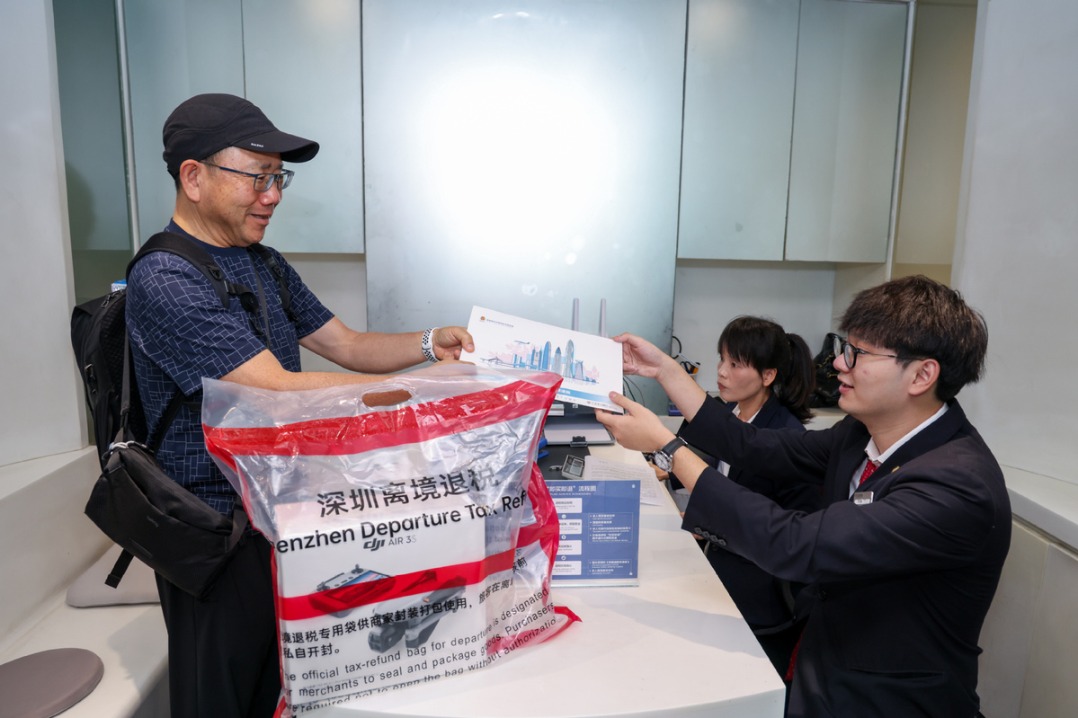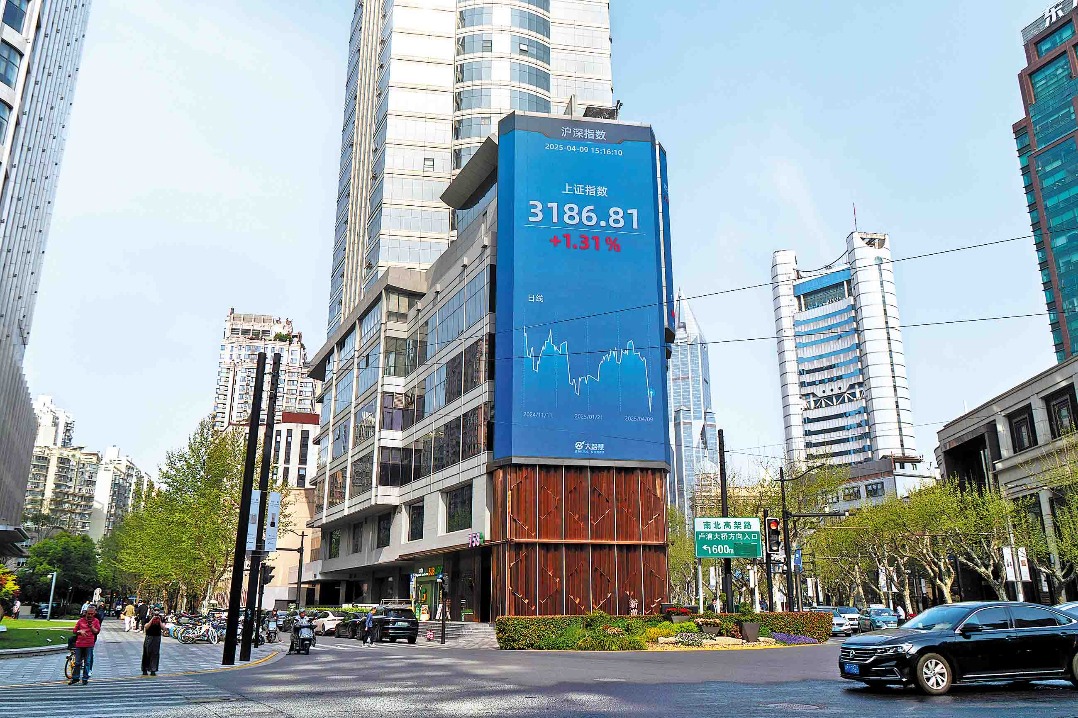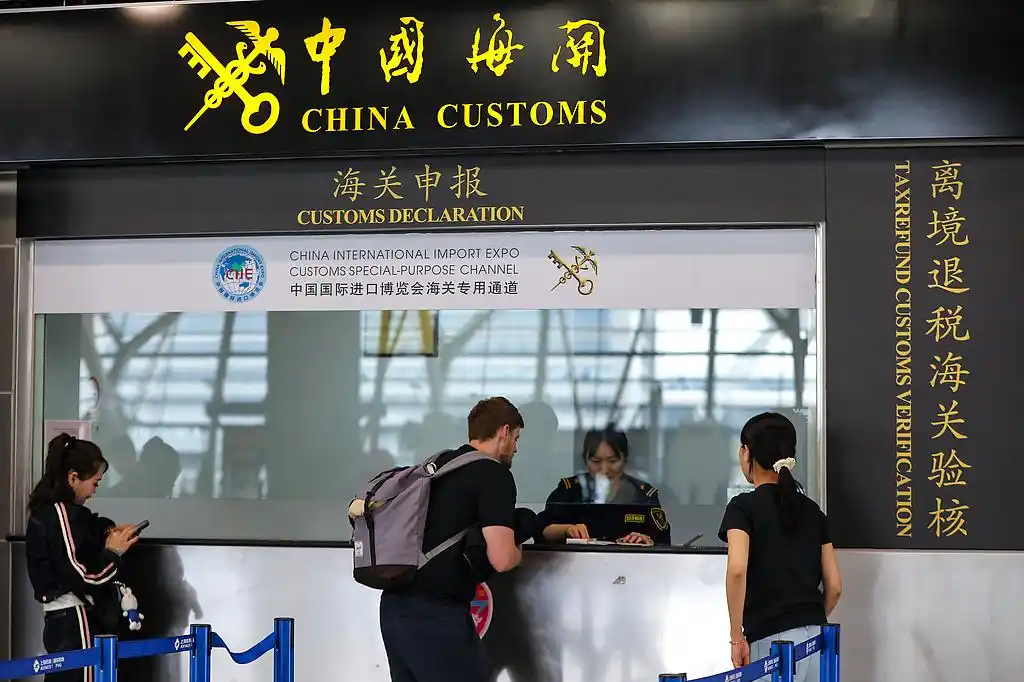Businesses upbeat over Sino-US tariff respite


Business groups and economists have welcomed the tariff adjustment measures announced by China and the United States on Monday, expressing the hope that the 90-day triple-digit tariff respite will allow both countries to further de-escalate trade tensions.
While this provisional agreement marks a notable development in China-US trade relations, analysts warned that business communities should maintain a measured approach, rather than be overly optimistic, as uncertainties still surround the sustainability of the deal and future trade negotiations.
According to a joint statement released by the world's two largest economies after a high-level meeting held over the weekend in Geneva, Switzerland, the US has agreed to slash its 145 percent tariffs on Chinese imports to 30 percent, while China has agreed to lower its tariffs on US goods to 10 percent from 125 percent.
Thomas Fullerton, an economist and a professor of economics at the University of Texas at El Paso, told China Daily that the 90-day triple-digit tariff respite "will help reduce the odds of a deep 2025 business-cycle contraction in both (the US and China), as well as in Latin America and other regions".
"International trade volumes will temporarily accelerate as companies place merchandise import orders that had previously been sidelined," he said.
Pesitro Healthcare Products Co, a manufacturer of oral care products based in Yangzhou, Jiangsu province, and a longtime supplier to Walmart in the US, expects a significant increase in orders from North American customers.
"People are accelerating their purchases because no one can predict future tariff dynamics," said Mu Longsheng, the company's marketing director. "The looming possibility of tariffs rising to 54 percent after 90 days has created additional urgency among North American buyers to secure inventory while rates are still low."
"The return of the US market is largely attributed to China's resolute countermeasures. Standing firm has earned us the respect and the orders we deserve," Mu added.
Jake Colvin, president of the National Foreign Trade Council based in Washington, DC, said the temporary agreement "cools the rapidly escalating trade war and gives some reprieve to US businesses and consumers".
"However, a temporary pause is just that," he said in a statement. "We urge the administration to continue engagement with China to come to a lasting agreement that will allow American companies to make long-term plans in a more stable and certain environment."
US President Donald Trump told reporters on Monday that he was certain a long-term deal would be reached. If it is not, the tariffs will not go back to 145 percent after the 90-day pause ends, but "will go up substantially", he said.
Long battle ahead
Analysts expect a long-drawn-out battle ahead, because they believe the gaps between China and the US on existing tariffs and nontariff barriers have further complicated the negotiations.
Gao Lingyun, a researcher at the Chinese Academy of Social Sciences' Institute of World Economics and Politics, said that despite the progress made in tariff reduction, the current overall duty rates continue to weigh heavily on companies and consumers on both sides of the Pacific Ocean.
Resolving this hefty tariff issue will, therefore, remain a key priority during upcoming negotiations, he said.
More important, the discussions are expected to expand into the realm of nontariff barriers. Areas such as investment regulations, market access and the supply of critical raw materials are likely to feature prominently on the agenda, he added.
Gao noted that both China and the US have long-standing concerns in these areas, and addressing them will be crucial for achieving a comprehensive and durable trade agreement.
Luo Zhiheng, chief economist at Yuekai Securities, said, "The results of any future negotiations will ultimately be determined by how each side leverages its power and economic resilience."
The outcome of the talks represented a notable shift from the "maximum pressure" approach that had characterized the previous China trade policy of the US, he said.
When confronted with China's firm countermeasures, the effectiveness of such unilateral actions proved less substantial than initially projected, leading to a necessary recalibration of the US' negotiating position, Luo said.




































